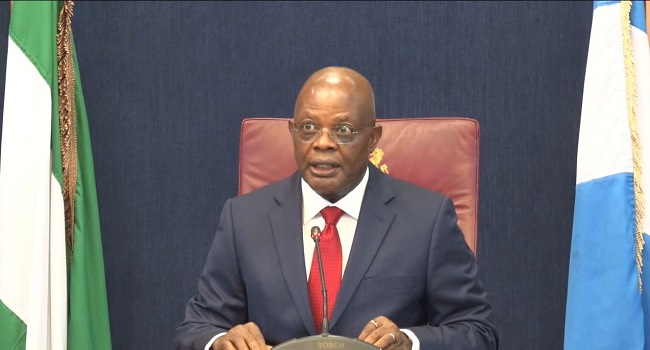The Blue Economy: A Catalyst for Nigeria’s Economic Transformation
Nigeria, a nation richly endowed with diverse natural resources, holds immense potential within its maritime domain. The blue economy, encompassing a wide spectrum of economic activities related to oceans, seas, and coasts, presents a transformative opportunity for the country. Recognizing the imperative to diversify its economy beyond oil reliance, Nigeria is increasingly focused on harnessing the vast resources of its blue economy to drive sustainable development and economic prosperity. Vice Admiral Ibok-Ete Ibas (retd.), the Administrator of Rivers State, has articulated the critical need for innovation-driven strategies, strategic partnerships, and robust policy implementation to fully unlock the potential of this burgeoning sector. He emphasized the pivotal role of the blue economy in creating jobs, enhancing food security, bolstering climate resilience, and generating a sustainable revenue stream, ultimately contributing to inclusive growth, economic stability, and long-term environmental sustainability.
Rivers State: A Microcosm of Blue Economy Potential and Challenges
Rivers State stands as a compelling example of both the immense opportunities and the complex challenges associated with developing the blue economy. The state boasts two of Nigeria’s largest seaports, two oil refineries, and the Nigerian Liquefied Natural Gas terminal in Bonny Island – one of Africa’s most sophisticated gas facilities. These strategic assets position Rivers State as a crucial hub for maritime activity and a natural focal point for blue economy development. However, alongside these advantages, the state also grapples with significant environmental and security challenges that underscore the need for a holistic and sustainable approach to blue economy development. Pollution, coastal erosion, illegal oil refining, unregulated fishing, inadequate infrastructure, and maritime insecurity pose significant hurdles that must be addressed to realize the full potential of the blue economy in Rivers State.
Navigating the Complexities: A Multi-Faceted Approach
Harnessing the potential of the blue economy requires a multi-faceted approach that addresses the complex interplay of economic, environmental, and security considerations. Ibas advocated for a shift from extractive practices to regenerative, inclusive, and innovation-driven solutions. He stressed the importance of political cohesion, intergovernmental collaboration, robust infrastructure development, and enhanced institutional capacity as essential prerequisites for achieving this transformation. The transition to a sustainable blue economy also necessitates disciplined planning, regulation, and strategic investment to maximize the sector’s benefits while mitigating its potential risks.
A Call for Collaborative Action: National and Sub-National Synergy
Recognizing the importance of coordinated action, Ibas urged sub-national governments, particularly coastal states, to embrace the national blue economy framework and develop tailored strategies that reflect their unique comparative advantages. He underscored the necessity of aligning these efforts with national policy to ensure a cohesive and effective approach to blue economy development. This collaborative approach is critical for addressing transboundary challenges and maximizing the collective impact of blue economy initiatives.
Institutional Reforms and Strategic Partnerships: Building a Sustainable Framework
Ibas reaffirmed the commitment of the Rivers State administration to implementing institutional reforms, strengthening coastal zone management, and fostering inter-agency collaboration to create a robust governance structure capable of supporting a sustainable blue economy. He emphasized the importance of embedding sustainability principles into development models from the outset rather than treating them as an afterthought. The pursuit of strategic partnerships in areas such as maritime education, aquaculture development, port modernization, and renewable ocean energy is also a key priority for Rivers State. These partnerships are seen as critical for fostering knowledge sharing, refining strategies, and enhancing implementation effectiveness.
Translating Research into Action: The Role of Policy and Strategic Studies
The visit of Study Group 7 from the National Institute for Policy and Strategic Studies (NIPSS) to Rivers State highlights the important role of research and policy analysis in informing blue economy development strategies. The group’s focus on “Blue Economy and Sustainable Development in Nigeria: Issues, Challenges, and Opportunities” underscores the need for a comprehensive understanding of the complexities of this sector. Ibas urged the NIPSS delegation to translate their findings into actionable recommendations that can effectively address the challenges and unlock the opportunities inherent in the blue economy. By fostering dialogue and collaboration between policymakers, researchers, and stakeholders, Nigeria can create a more robust and effective framework for harnessing the transformative potential of its blue economy.


